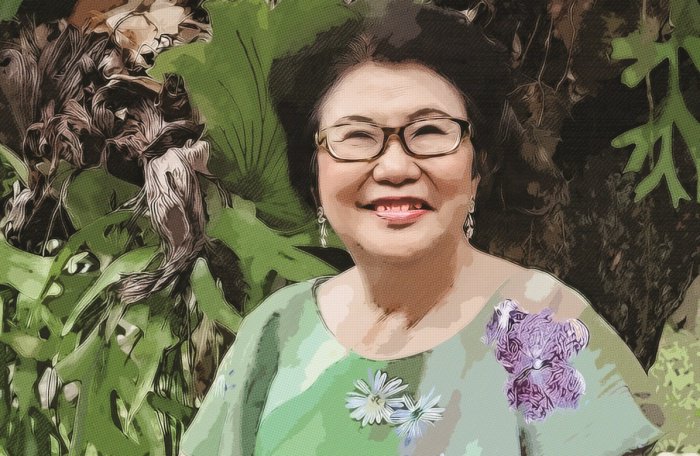Video Report: Upholding Phuket’s unique Baba culture

PHUKET: Few people in the world understand Phuket’s unique culture better than Assistant Professor Pranee Sakulpipatana, known to the general public simply as Ajarn Pranee. Though she is a historian, Ajarn Pranee doesn’t need to dig into other people’s past to understand the Baba culture that is quintessentially Phuket.
Now 68 years old, Ajarn Pranee was born on Thalang Road – the heart of Phuket Old Town. She is from a Chinese immigrant family – the original expats of Phuket – who settled on the tin mining island about 150 years ago.
“I am so glad that I was born in a very old-fashioned era. It was so beautiful when people were so kind and lived without technology. Old fashioned people spoke nicely. Nothing like this age, when people are rushing and can be so selfish,” Ajarn Pranee said.
“I received my Thai name in 1956, when I was just 9 years old; Field Marshal Plaek Phibunsongkhram, former Prime Minister, was the leader at that time.”
Ajarn Pranee’s family wasn’t the only one to adopt Thai names as anti-communist sentiments were rising and a hysteria about the perceived threat posed by communists in the United States was in full swing.
“We changed our names after one of my neighbors was deported because she married a Chinese man who was an insurance agent – the government alleged that he was a communist,” Ajarn Pranee said.
“A few years ago, she visited Phuket for a family-business event – she is from a wealthy Phuket family. I remember when she was living here; they sold very expensive watches.
“I was surprised how clearly she spoke the Phuket dialect after all these years. It was just another example of how beautiful Phuket is, and made me love the island even more.”
Ajan Pranee’s first language is the Phuket dialect of Thai, her second language Hockien Chinese, followed by central Thai and English.
Honorary Consul to Phuket for Nepal, Phuket Community Foundation President and Thai Peranakan Association Vice President, Ajarn Pranee’s life work – beyond caring for her husband and their two children – has been to preserve and educate the world about Phuket’s Baba culture.
“I write a lot of articles describing Phuket’s unique culture. I am upset anytime someone tries to publish incorrect material about Phuket’s history. I don’t want to see our culture being modified for some ulterior motive, especially business,” she said.
For example, her family owns the oldest Phuket Pateh, similar to batik, shop in Phuket, established in 1932.
“I learned about the fabrics from my grandmother, who lived to almost 100 years, and my mother, who is now 96 years old. They taught me everything, which is why I understand the fabrics so well and how to dress in true Baba fashion.
“But then people come in and try to say their fabric is ‘Phuket fabric’. When I tell them they are wrong, that it is not, they get angry. I don’t mind if people want to do business here and bring other textiles to the island, as long as they are truthful and do not try to manipulate our past to meet their present needs.”
Ajarn Pranee is more than happy to walk the streets of Old Town recalling the history that lives behind each home’s door and the culture that created it, something that she knows must be shared and preserved for future generations.
“My dream is to continue to freely work for Phuket, the place where I was born, raised and has given me so many opportunities. To do this for the rest of my life will bring me great happiness.”
— Chutharat Plerin
Latest Thailand News
Follow The Thaiger on Google News:


























